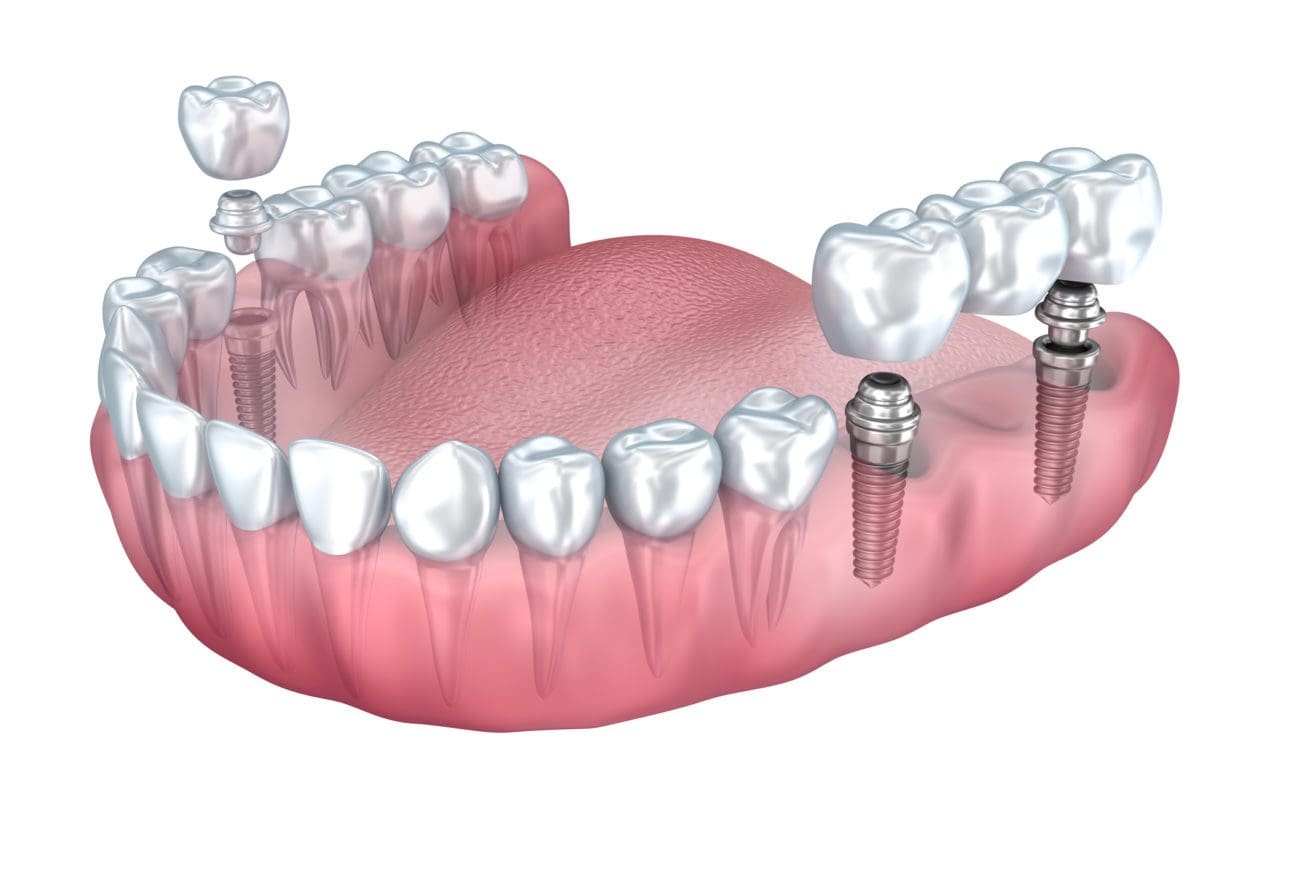Indicators on Dental Sense You Should Know
Indicators on Dental Sense You Should Know
Blog Article
Top Guidelines Of Dental Sense
Table of ContentsLittle Known Facts About Dental Sense.5 Easy Facts About Dental Sense DescribedNot known Details About Dental Sense All about Dental Sense
are medical gadgets surgically implanted right into the jaw to bring back an individual's capacity to chew or their appearance. They supply assistance for man-made (fake) teeth, such as crowns, bridges, or dentures. When a tooth is lost as a result of injury or disease, an individual can experience issues such as fast bone loss, defective speech, or modifications to chewing patterns that cause discomfort.Oral implant systems include a dental implant body and dental implant joint and may likewise include an abutment fixation screw. Professional teeth whitening. The oral implant body is surgically inserted in the jawbone in place of the tooth's root. The oral implant abutment is normally affixed to the dental implant body by the joint addiction screw and prolongs via gums right into the mouth to sustain the attached artificial teeth
(https://www.mixcloud.com/dentalsense1/)Framework of The Oral Implant System choosing dental implants, speak to your dental supplier regarding the potential benefits and dangers, and whether you are a candidate for the treatment. Things to take into consideration: Your total health is an important consider establishing whether you are a good candidate for oral implants, the length of time it will take to recover, and for how long the implant may remain in area.
Cigarette smoking might influence the healing process and decrease the lasting success of the implant. The healing process for the dental implant body may take a number of months or longer, throughout which time you generally have a short-lived joint instead of the tooth. the oral implant procedure: Carefully comply with the oral health guidelines offered to you by your dental company.
Dental Sense Fundamentals Explained
Implant failure can lead to the demand for another surgical procedure to deal with or replace the implant system. Brings back the capability to eat Recovers cosmetic appearance Assists keep the jawbone from reducing as a result of bone loss Maintains the health of the bordering bone and gum tissues Helps keep adjacent (close-by) teeth steady Enhances high quality of life Damages to bordering all-natural teeth throughout dental implant positioning Injury to the surrounding cells throughout surgical procedure, such as sinus opening Injury throughout surgery (as an example, fracture of bordering jawbone) Inadequate function, such as feeling like the teeth do not attack with each other generally A sensation that the tooth is loose or turning in area arising from an abutment screw loosening Implant body failing (looseness of the dental implant body) because of systemic infection, which may be more probable in individuals with unrestrained diabetics issues because of regional infection in bone and periodontals supporting the implant body as a result of postponed healing, which may be more most likely in people that smoke Problem cleaning up the gums around the dental implant, causing inadequate dental hygiene Untreated gum condition Post-surgical tingling because of nerve impingement or damage Constantly inform health and wellness care companies and imaging specialists that you have dental implants prior to any type of magnetic resonance imaging (MRI) or x-ray procedures.
FDA is not familiar with any type of damaging occasions reported for MRI or x-ray treatments with oral implants. Dental implants systems are typically made of materials that adhere to worldwide consensus click reference criteria of the International Organization for Standardization (ISO) or ASTM International. These criteria have details of what makes a safe product.

A dental implant is a framework that changes a missing out on tooth. With screw-like tools, the surgeon inserts an implant into the jawbone, and it acts as an anchor for a synthetic tooth, called a crown.
What Does Dental Sense Mean?
Some individuals are not eligible for dental implant surgery. It is for oral doctors to operate people with: acute illnessuncontrollable metabolic diseasebone or soft tissue condition or infectionIf these problems are solved, an individual can have the surgery. In, oral surgeons avoid operating on individuals with: If people with any one of the above undertake oral implant surgical procedure, there is a higher threat of the implant failing.

Dental dental implant surgery is a tailored procedure. It's not the very same for every person. The following provides a general summary of what you can expect your dental practitioner, oral doctor, periodontist or prosthodontist to do: Place the implant surgically. Offer you time to recover. Attach the article and last crown, bridge or denture.
Next, your doctor will very carefully put the oral implant right into your jaw. Finally, your doctor will reposition your periodontals and close the cut with stitches. If your implant is near the front of your mouth, your dental professional will make a short-lived tooth for you to wear till you heal. In this way, you won't have a void in your smile while you recoup.
The Buzz on Dental Sense
Throughout the recovery phase, your jawbone needs to fuse to the oral implant. This process can take anywhere from three to nine months.
As soon as your dental implant heals, your dental practitioner can affix the abutment (small adapter post) and your final reconstruction (crown, bridge or denture). This generally takes concerning one hour to complete and may require a 2nd minor surgical procedure. You should not feel any discomfort during your dental implant procedure due to the fact that your copyright will make use of medicine to numb your periodontals.
Report this page